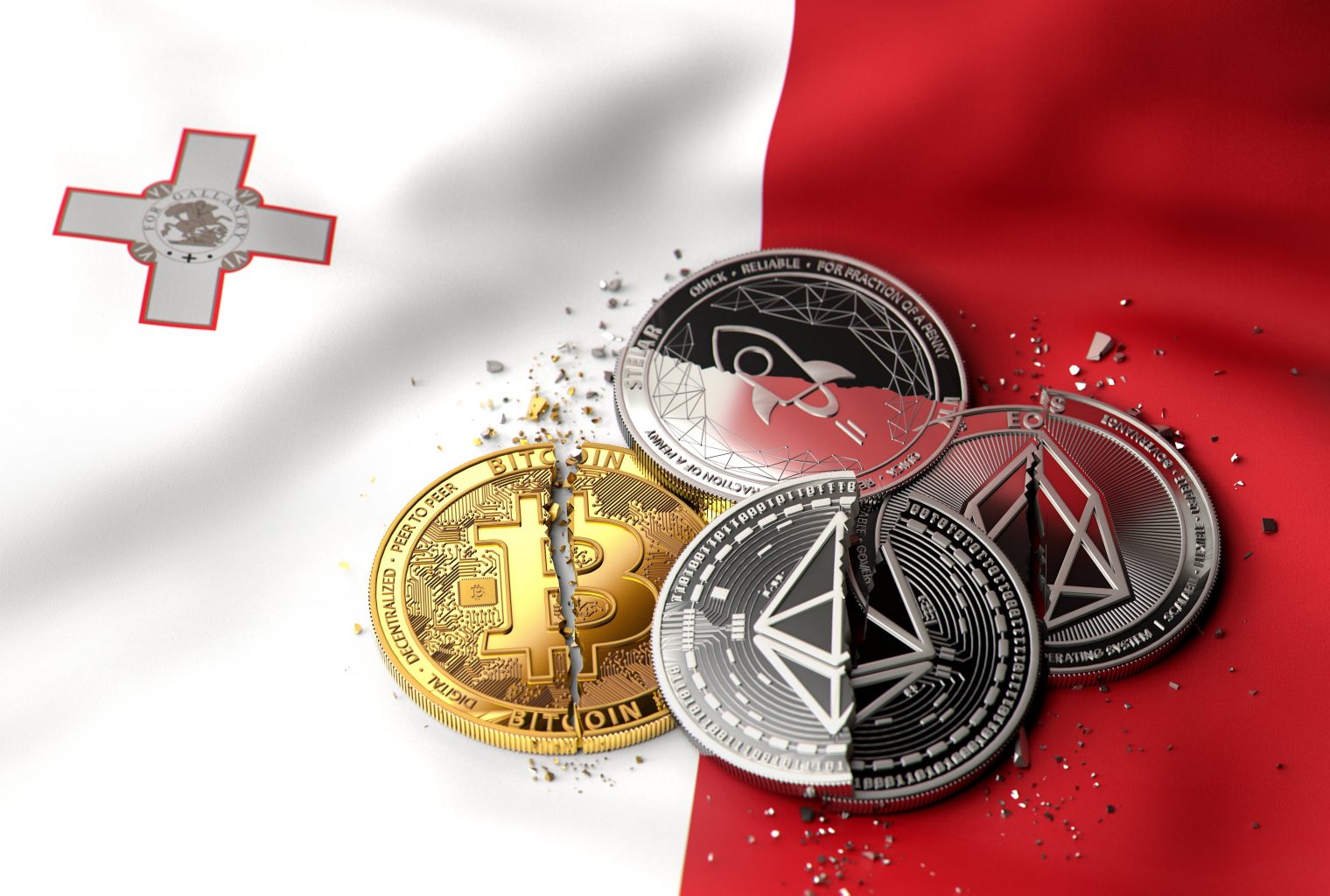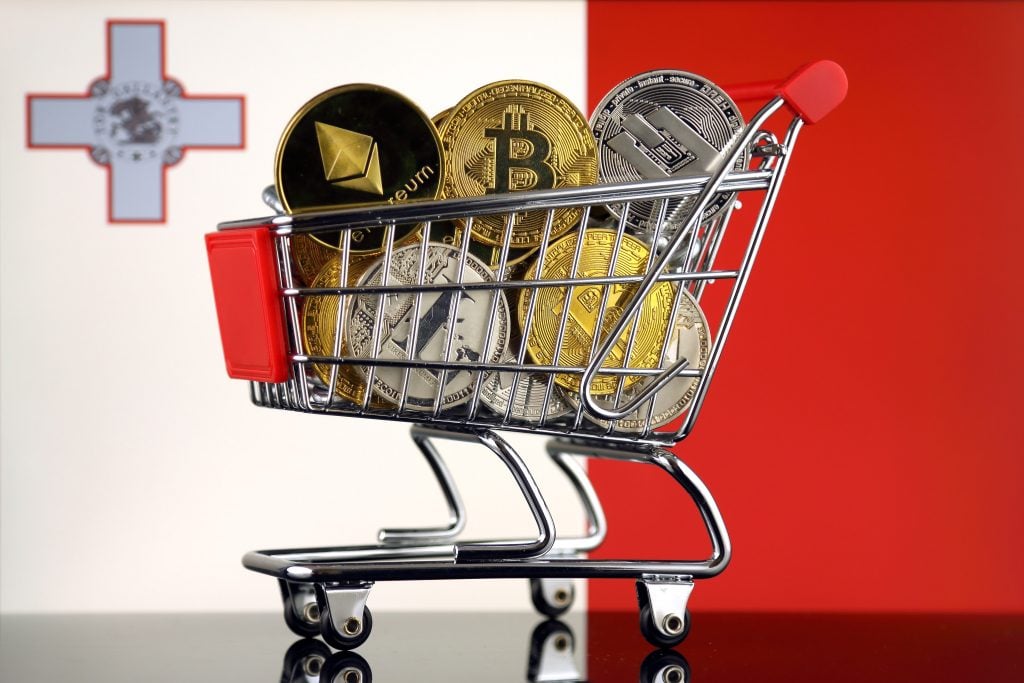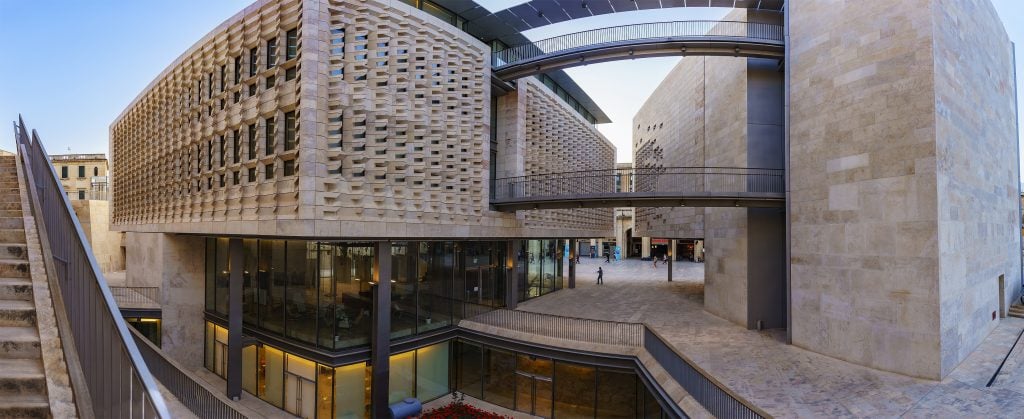
Malta has been hyped up as the happy ending for crypto business who have trouble operating elsewhere, but there’s a problem: banks are reluctant to grant crypto startups business accounts until they’re properly licensed with the MFSA. This process can take up to six months for a first-round response, leaving many businesses unable to operate using local bank accounts.
Also read: Only 39 Percent Pass Malta’s Cryptocurrency Exam
A Banking Snag in Blockchain Paradise
A recent report by the Times of Malta suggests that while crypto businesses have flocked to the world’s so-called blockchain haven, a task as simple as opening a bank account isn’t nearly as straight-forward as they had anticipated, with banks showing them the door until they’ve received the appropriate licensure from the Malta Financial Services Authority.
Malta, a tiny island in the middle of the Mediterranean, has — thanks to its highly publicised commitment to becoming the “Blockchain Island” — made a name for itself in an industry where regulatory loyalty stretches as far as those countries that provide the most favorable support conditions.
However, while many cryptocurrency startups, including high-profile exchanges like Binance, Bittrex, Okex, Bitbay, and Zebpay, have moved or extended operations from stricter regulatory jurisdictions to set up shop incorporating their businesses in crypto-friendly Malta, it appears the reality might not be as rosy.

Numerous service providers confirmed to the Times of Malta that banks are citing the reason for their rejection of account applications as being “outside their risk appetite.” Additionally, Parliamentary Secretary for Financial Services Silvio Schembri told the paper that a distinction should be made between blockchain and crypto operations since banks are less likely to do business with the latter.
It’s Not Just Malta, It’s Everywhere
Ian Gauci, a partner at Malta-based legal firm GTG Advocates, serves as an advisor on the Maltese government’s task force for blockchain strategy and deployment. In communication with news.Bitcoin.com, he noted that the scenario in Malta is symptomatic across the globe.
Gauci, who is also the co-founder of the Malta Blockchain Association and lectures on Legal Futures and Technology Law at the University of Malta, noted that banks in both Malta and abroad are averse to risks. This, he added, cuts across different sectors and is not exclusive to the blockchain industry. In Malta, he said, the issue is exacerbated due to the fact that as a country it has installed a regime to cater for blockchain as well as cryptocurrencies, thus attracting the largest amount of innovators and operators to its shore. According to Gauci:
These [cryptocurrency] outfits, like any other industry, need bank accounts to manage their operations. We have seen a slight opening from certain banks – albeit, in all honesty, it’s still minimal. I am sanguine, however, that once our regulatory regime is fully rolled out (which is imminent), banks can assess the sector from a different angle and in all probability be more receptive to this new industry.
Blockchain Island, Blockchain Bank: Media Creations
Alessandro Benigni, co-founder of crypto market research firm Coinsflare, told news.Bitcoin.com that Agribank was one of the first banks in Malta which seemed to be crypto-friendly, but even there, “they wouldn’t issue cards, you could only have access to the online platform to manage funds.” Benigni added that it’s important to keep one’s finger on the pulse, as banks are “constantly updating their policies,” as is to be expected from financial institutions on the high-profile island.
Former AgriBank CEO Roderick Psaila is reportedly in the process of applying for a credit institution license with the Malta Financial Services Authority. His new venture, RnF Finance Limited, will open its doors to crypto companies, provided their due diligence procedures are sufficient. However, the media’s portrayal of RnF as “Malta’s first blockchain bank” has been blown out of proportion and is downright erroneous. Speaking to news.Bitcoin.com, he explained that such media reports are inaccurate:
The reality is that RnF is not a bank and its application has still to be processed by the appropriate regulatory authorities. So in this respect, any reference to RnF as a bank would be misleading and damaging. Should a license be granted, the model will not emulate any traditional banking model, it will lead a new generation of service providers, always within the applicable banking and AML regulations.
Separating Hype From Reality
Hitherto, Malta has rarely made waves on the world stage. However, with the island’s dedicated insistence on becoming a regulatory utopia where cutting-edge tech in the digital economy flourishes from one corner of the land to the other, this is changing fast. Over and above blockchain, Malta is already a flourishing igaming destination and is now also involving itself in becoming AI- and medical marijuana-friendly.

However, while the industry enjoys widespread support from Prime Minister Joseph Muscat, this doesn’t ensure direct translation to the Shangri-La the media suggests. With everyday operations being stilted by access to services as basic as a business account, the question remains whether positioning Malta as present-day crypto paradise has been too hasty, losing companies valuable time and money in the process.
Emanuel Pulis, CEO of three Malta-based conferences (the Malta and AI Blockchain Summit, Cannabiz Summit World, and Sigma, World’s iGaming Village), confirmed to news.Bitcoin.com that banks are “fine” with opening bank accounts for blockchain operators but less likely for operations in crypto. With cryptos, he explained, banks are “threading on the cautious” and waiting for the MFSA licenses to be granted before opening any bank accounts. He noted, however, that the future “seems bright” with other private banking initiatives that are currently being reviewed by MFSA for approval, adding that this topic will be a central theme at the next Malta AI & BC Summit, which will be attended by Prime Minister of Malta Joseph Muscat on May 23-24, 2019.
Thus, while the blockchain media has made Malta its destination darling, the reality is far more sobering. It’s an island dedicated to playing an active role in shaping regulations around blockchain and cryptocurrency, yes, and shaping them as pro-startup as possible, but it’s not a place where anything goes. At least, not presently where bank accounts are concerned.
Do you think Malta will live up to its much-publicized reputation of being a premier industry destination? Let us know in the comments section below.
Images courtesy of Shutterstock.
Verify and track bitcoin cash transactions on our BCH Block Explorer, the best of its kind anywhere in the world. Also, keep up with your holdings, BCH, and other coins, on our market charts at Satoshi’s Pulse, another original and free service from Bitcoin.com.
Previous Articles:
- Distributed Digest: Thursday, February 28, 2019
- Ethereum Foundation Director Sets New Vision for Blockchain Non-Profit
- Bitcoin Cash Supporter Convinces Chess.com to Accept BCH for Memberships
- South Africa’s Standard Bank To Use Blockchain Tech To Facilitate Overseas Trade
- Angry Bitcoin Fans Delete Coinbase Accounts to Protest Neutrino Acquisition
